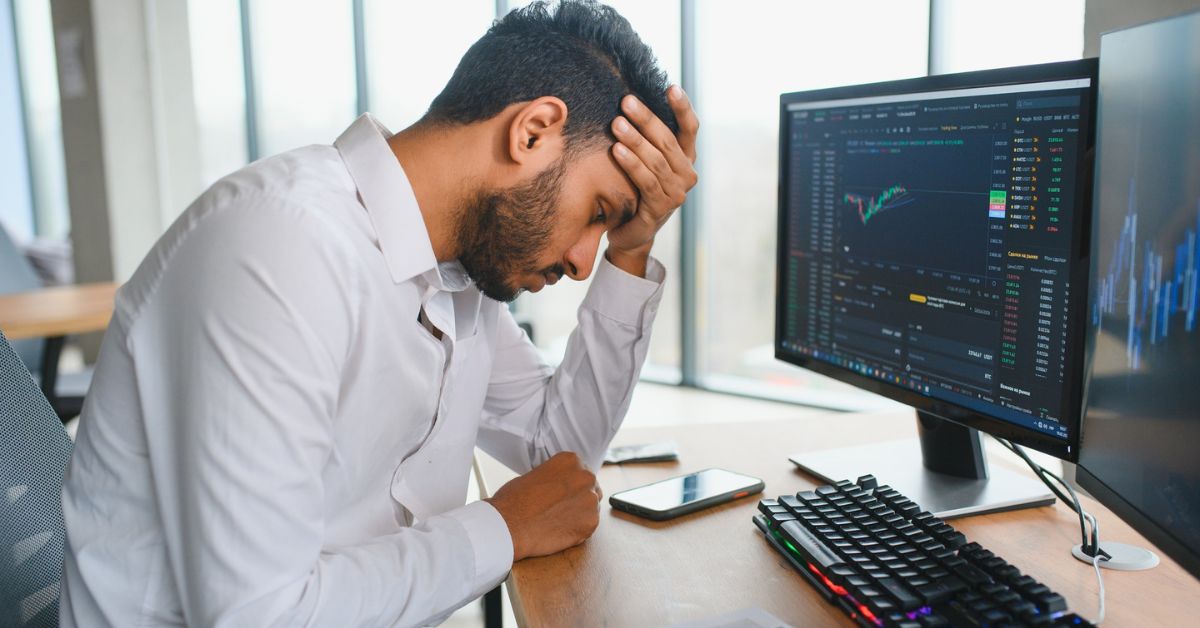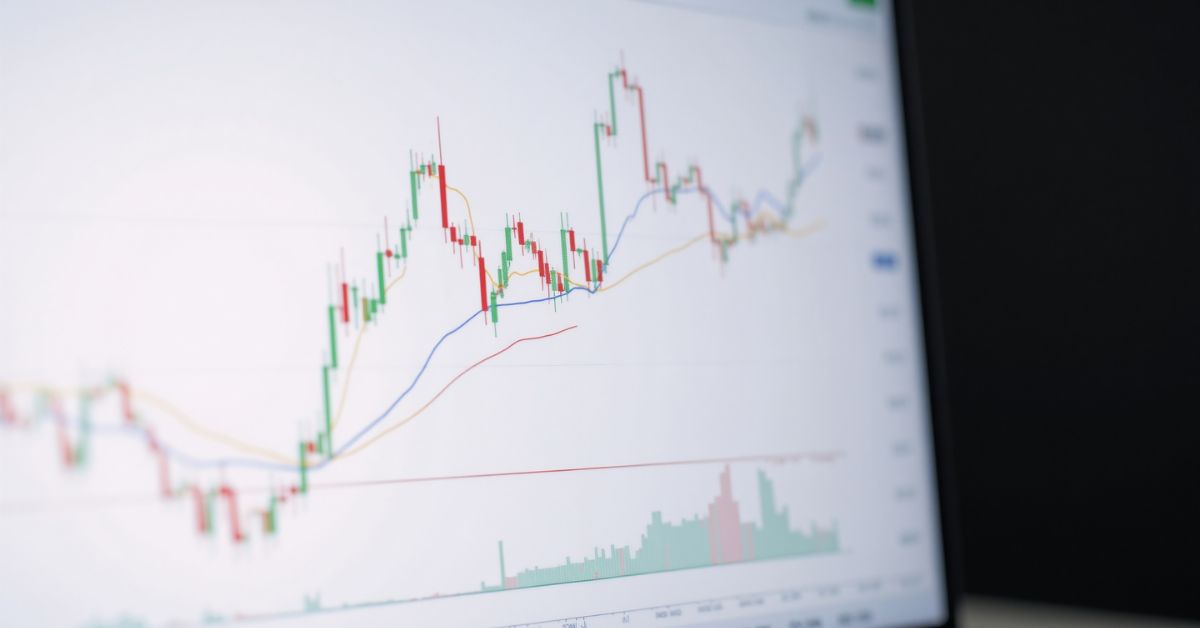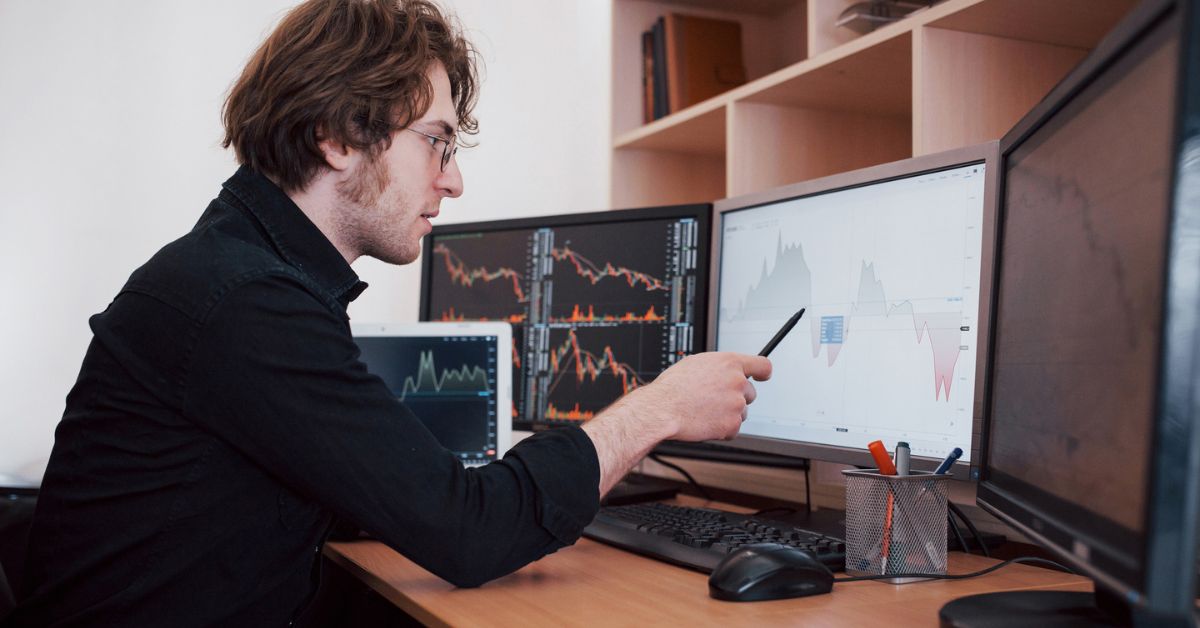Traders often enter the market with excitement, expecting constant action. However, trading can involve long stretches of waiting, observing, and analyzing, leading to boredom. But it can impact decision-making, making traders more likely to take impulsive risks. Managing these feelings is essential to avoiding unnecessary losses and maintaining focus.
In today’s post, we will cover trading anxiety symptoms, their reasons, and how to avoid them to continue a stable trading career. Prime XBT, a trusted crypto trading platform, offers a variety of tools and resources that help traders stay engaged productively. Prime XBT provides advanced analytics, multi-market access, and user-friendly charts.
These features help traders make well-informed decisions and avoid impulsive trades. So, join PrimeXBT today! Use promo code PRIMEOTT to receive a +7% bonus on your deposit. Staying active on such a platform can help traders channel their focus constructively and avoid anxiety. It can reduce the effects of stress in a way that supports long-term success.
What is Trading Anxiety?
Trading anxiety is the intense emotional strain traders often feel in response to the high-stakes nature of financial markets. This anxiety commonly results from the constant psychological and economic pressures unique to trading. Factors like rapid market fluctuations and the risk of significant financial loss are primary contributors.
During volatile market conditions, traders face elevated mental stress, which can lead to feelings of panic and impulsive decision-making. The fear of losing hard-earned money, paired with pressure to make quick decisions, can heighten anxiety. Symptoms of trading anxiety may include worry, irritability, and physical reactions like increased heart rate.
Many people say that constant monitoring of trades raises stress hormones, contributing to mental fatigue and even emotional burnout. Experts in behavioral finance stress the importance of managing these emotions for trading success. Uncontrolled anxiety can cloud judgment and increase the likelihood of making poor trading decisions.
Common Trading Anxiety Symptoms

Trading anxiety can manifest in various ways. Recognizing these symptoms is crucial for effective management.
Physical Symptoms
Physical symptoms of trading anxiety may include heart palpitations, sweating, and restlessness. These signs can make it hard to focus on trading decisions. A study published in the Journal of Behavioral Finance found that traders often experience physical responses to market volatility. It can adversely affect their judgment.
Emotional Symptoms
Emotional symptoms are just as important. Traders may feel a constant fear of loss, which can lead to indecisiveness. This fear can also result in irritability, affecting interactions with others. According to research by the American Psychological Association, high levels of anxiety can impact decision-making and increase stress.
Behavioral Symptoms
Behavioral symptoms are common as well. Overtrading is a frequent response to anxiety, where traders make too many trades in a short period. This can lead to greater losses. Additionally, traders may second-guess their decisions or even avoid trading altogether. The inability to trust oneself can create a cycle of anxiety and missed opportunities.
Recognizing these signs early is vital for managing trading anxiety effectively. Knowing these symptoms can help traders deal with their stress.
What are the Causes of Anxiety in Trading?
In order to manage trading anxiety effectively, you have to understand the causes. Several factors contribute to the stress traders experience.
Unrealistic Expectations
Many new traders enter the market with hopes of quick profits. They may believe they can make substantial gains overnight. When these expectations are not met, disappointment can set in. This gap between expectation and reality can lead to heightened stress levels. Research shows that setting realistic goals can help mitigate this anxiety.
Financial Risk and Loss
The financial stakes in trading are significant. Traders often invest large sums of money, which raises the risk of loss. The fear of losing money can be overwhelming, especially for beginners. Studies indicate that the fear of financial loss is one of the most significant sources of anxiety among traders. This fear can lead to poor decision-making and increased emotional responses during trades.
Market Volatility and Unpredictability

Financial markets are known for their volatility. Prices can fluctuate dramatically within short periods, creating a sense of instability. Many traders find it challenging to cope with these rapid changes, leading to increased anxiety. According to the Journal of Behavioral Finance, traders’ emotional responses to market volatility can impair their judgment.
Self-Pressure and Performance Anxiety
Many traders put pressure on themselves to outperform others or achieve specific financial goals. This self-imposed pressure can lead to performance anxiety, making it hard to make clear decisions. Behavioral finance experts suggest that managing expectations and accepting that losses are part of trading can reduce this anxiety.
Insights from Trading Psychologists
Trading psychologists emphasize that expectations significantly influence stress levels. They recommend that traders develop a solid trading plan that includes risk management strategies. You can reduce anxiety if you focus on long-term goals rather than short-term gains.
Impact of Anxiety on Trading Performance
Anxiety can significantly affect a trader’s performance. If traders understand these impacts, they can manage their emotions and improve their results.
Impulsive or Overly Cautious Decisions
Anxiety often leads traders to make impulsive decisions. When feeling anxious, a trader might sell a stock too quickly. This can result in missing out on potential gains. Conversely, anxiety can also cause traders to become overly cautious.
They might hesitate to enter a trade, fearing potential losses. Many research indicates that anxiety can cloud judgment, making it hard to assess market conditions accurately.
According to a study published in the Journal of Behavioral Finance, emotional responses can lead to suboptimal decision-making, ultimately affecting profitability. The emotional stress can trigger a fight-or-flight response, leading traders to act irrationally.
Paralysis by Analysis
Another common issue is “paralysis by analysis.” This occurs when traders overthink every decision. They may analyze data and charts excessively, which can hinder their ability to make timely choices.
A study from the Harvard Business Review highlights that excessive analysis often leads to missed opportunities. The anxiety of making the wrong choice can paralyze traders, preventing them from acting on profitable opportunities.
When traders overanalyze, they may become overwhelmed by information. This can lead to confusion and uncertainty, ultimately resulting in inaction. Taking too much time to decide can be just as harmful as making rash decisions.
Long-Term Effects on Financial Health
The long-term effects of trading anxiety can be severe. Continuous anxiety can lead to chronic stress, impacting both mental and physical health. According to the American Psychological Association, long-term stress can lead to health issues such as heart disease and high blood pressure. Traders facing ongoing anxiety may also experience burnout, which can decrease their effectiveness in trading.
Moreover, prolonged anxiety can lead to significant financial losses. Traders may make poor choices due to emotional turmoil, leading to a negative impact on their portfolios. Research shows that individuals who manage their anxiety effectively often see improved trading results and better financial health.
Effective Strategies for Managing Trading Anxiety

Trading anxiety can be challenging, but there are effective strategies to help manage it. These techniques can help traders improve their focus and decision-making abilities.
Setting Realistic Expectations
Traders often face losses. Accepting that losses are part of trading is crucial for maintaining a positive mindset. Focusing on long-term growth rather than immediate gains can help reduce stress. It’s important to remind yourself that trading is a marathon, not a sprint.
Developing a Trading Plan
A well-structured trading plan is essential. This plan should outline your goals, strategies, and risk management rules. Having a clear plan reduces uncertainty and the tendency to overreact to market changes. Research indicates that traders with defined strategies are more likely to stay disciplined and make rational decisions.
Mindfulness and Meditation
Practicing mindfulness and meditation can significantly benefit traders. These techniques encourage staying present, which helps reduce stress. Mindfulness can improve emotional regulation, allowing traders to maintain focus during trading sessions. Studies show that regular mindfulness practice enhances concentration and reduces anxiety levels, leading to better decision-making.
Risk Management and Diversification
Effective risk management is vital for reducing trading pressure. Limiting exposure to any single investment helps minimize anxiety. Diversifying investments across different asset classes can also spread risk. The CFA Institute emphasizes that sound risk management practices contribute to more consistent trading results and help traders remain calm under pressure.
Education and Continuous Learning
Building knowledge through education increases a trader’s confidence. Market trends, trading strategies, and financial instruments prepare traders for challenges. Continuous learning enables traders to feel more in control of their decisions, reducing anxiety. Knowledgeable traders tend to perform better and experience lower levels of stress.
Practical Tips for Staying Calm and Focused
- Create a Routine: Establishing a daily routine can help create structure. This can include setting specific times for trading, reviewing market news, and analyzing past trades.
- Take Breaks: Stepping away from the screen can help avoid burnout. Short breaks allow traders to refresh their minds and regain focus.
- Limit News Consumption: Constantly checking news updates can heighten anxiety. Instead of monitoring them continuously, set specific times to review news related to your trades.
- Practice Deep Breathing: Deep breathing exercises can help calm your nerves. Even a few minutes of focused breathing can lower stress levels and improve clarity.
- Stay Connected: Engaging with a community of traders can provide support. Sharing experiences and strategies reduces feelings of isolation and anxiety.
These strategies will help traders deal with anxiety better. It can lead to improved trading outcomes and overall mental well-being.
The Role of Physical and Mental Health in Managing Anxiety

Taking care of both physical and mental health is essential for managing trading anxiety effectively. Incorporating practices that support overall wellness can improve resilience, focus, and stress management.
Importance of Sleep, Regular Exercise, and a Balanced Diet
Good sleep is vital for mental clarity and emotional stability. Studies show that lack of sleep can heighten anxiety and impair judgment and decision-making. To support mental health, aim for 7-9 hours of quality sleep per night.
Regular exercise is another key factor. Exercise releases endorphins, which reduce stress and improve mood. According to the Anxiety and Depression Association of America, physical activity can decrease anxiety symptoms, enhance concentration, and improve decision-making.
A balanced diet supports brain function and provides steady energy throughout the day. Omega-3 fatty acids, found in fish, nuts, and seeds, have been shown to reduce anxiety symptoms and improve mood. Avoid excessive caffeine, as it can increase nervousness and contribute to anxiety.
Seeking Support from Friends, Mentors, or Professional Counselors
Talking to others can provide relief and perspective. Friends and mentors in the trading community can share experiences and coping strategies, offering insights on handling market stress. Social support has been proven to reduce stress levels and enhance emotional resilience.
Professional counseling can also be beneficial. Therapists trained in cognitive-behavioral therapy (CBT) or stress management techniques can provide valuable coping strategies. According to the American Psychological Association, therapy helps individuals understand and manage anxiety triggers effectively.
When to Seek Professional Help for Trading Anxiety
If trading anxiety becomes unmanageable, it might be time to seek professional assistance. Indicators that anxiety may require extra support include constant worry, difficulty concentrating, and feeling mentally or emotionally overwhelmed. Professional help, like cognitive-behavioral therapy (CBT) and other strategies, can provide tools to navigate stress and emotions associated with trading.
Signs You Might Need Professional Help
In the case of chronic symptoms like fatigue, sleep problems, irritability, and difficulty focusing on trading tasks, anxiety could be escalating. Mental health professionals can offer guidance on recognizing these signs early and using targeted coping mechanisms.
How Therapy Can Assist
Therapists can help traders develop practical skills like mindfulness techniques to minimize the emotional impact of trading losses. This approach improves resilience, builds mental clarity, and aids in avoiding trading burnout. Seeking help is a proactive step toward maintaining mental well-being and enhancing overall performance.
Read More: Trading Psychology Rules
Conclusion
Trading anxiety is a common hurdle that affects decision-making and long-term performance. Managing emotions, understanding the market, and setting realistic expectations are all crucial to reducing stress and making rational trades.
For those tired of losing money due to panic selling, FOMO, overtrading, or bag holding, the Vestinda trading app provides an alternative. Automated crypto trading strategies from Vestinda help you make better, more consistent trades.



